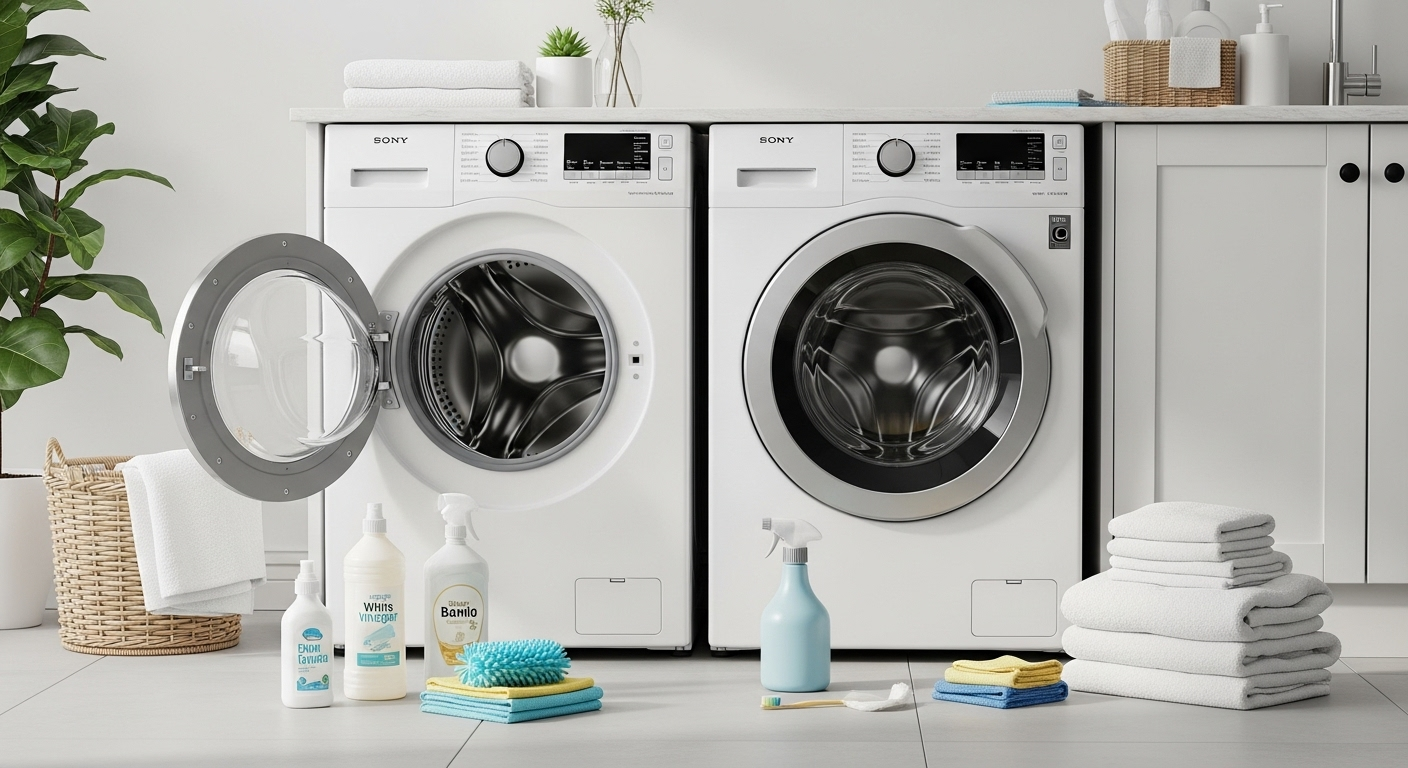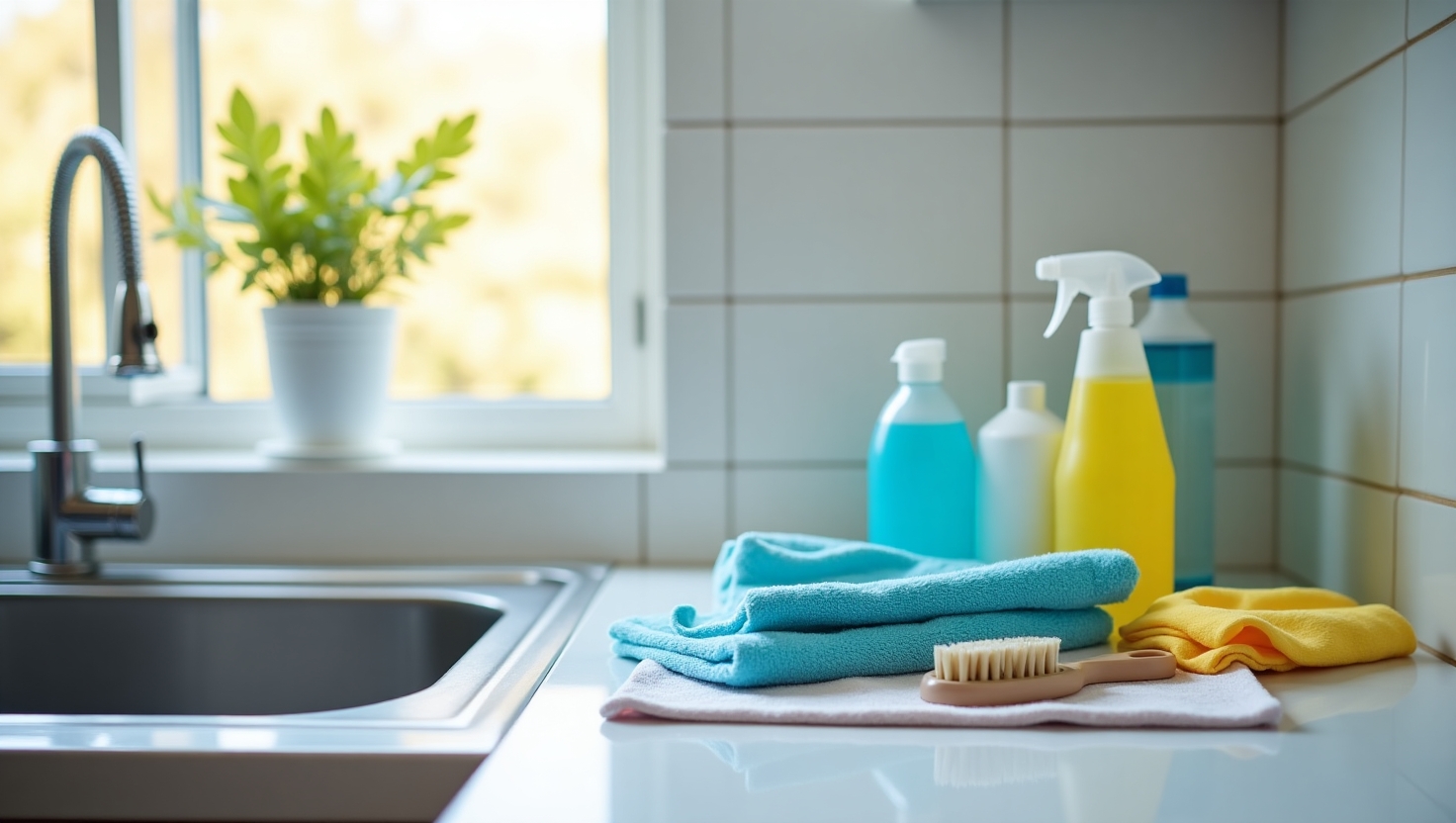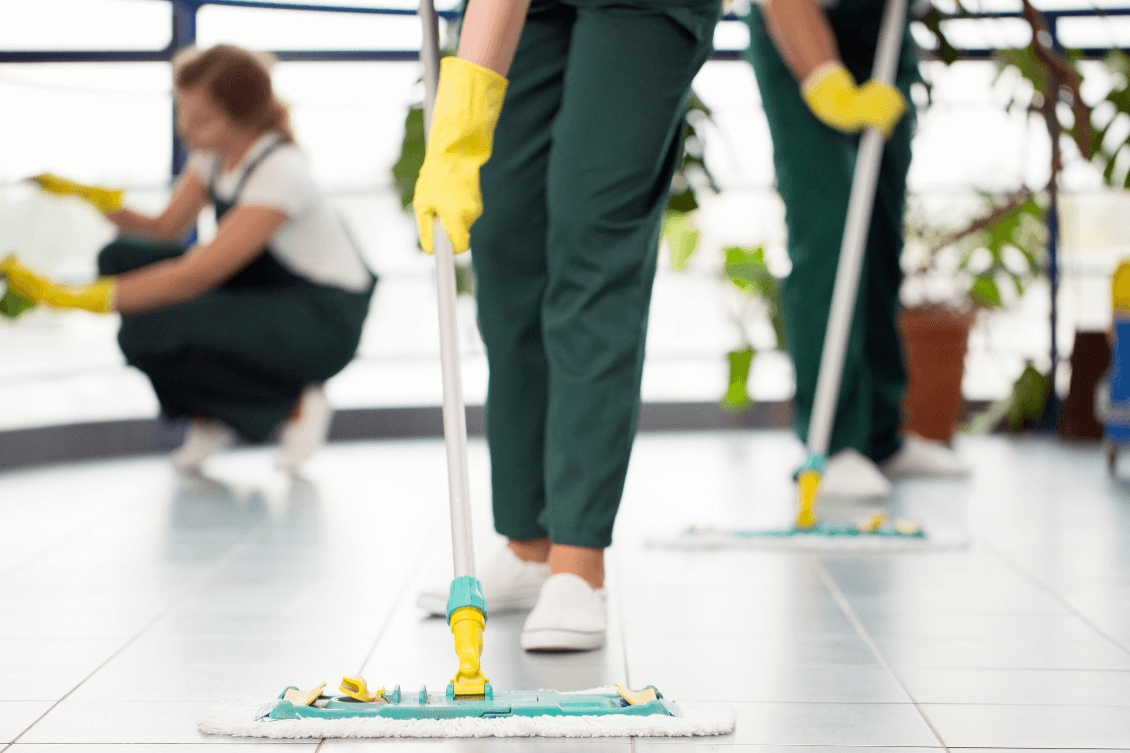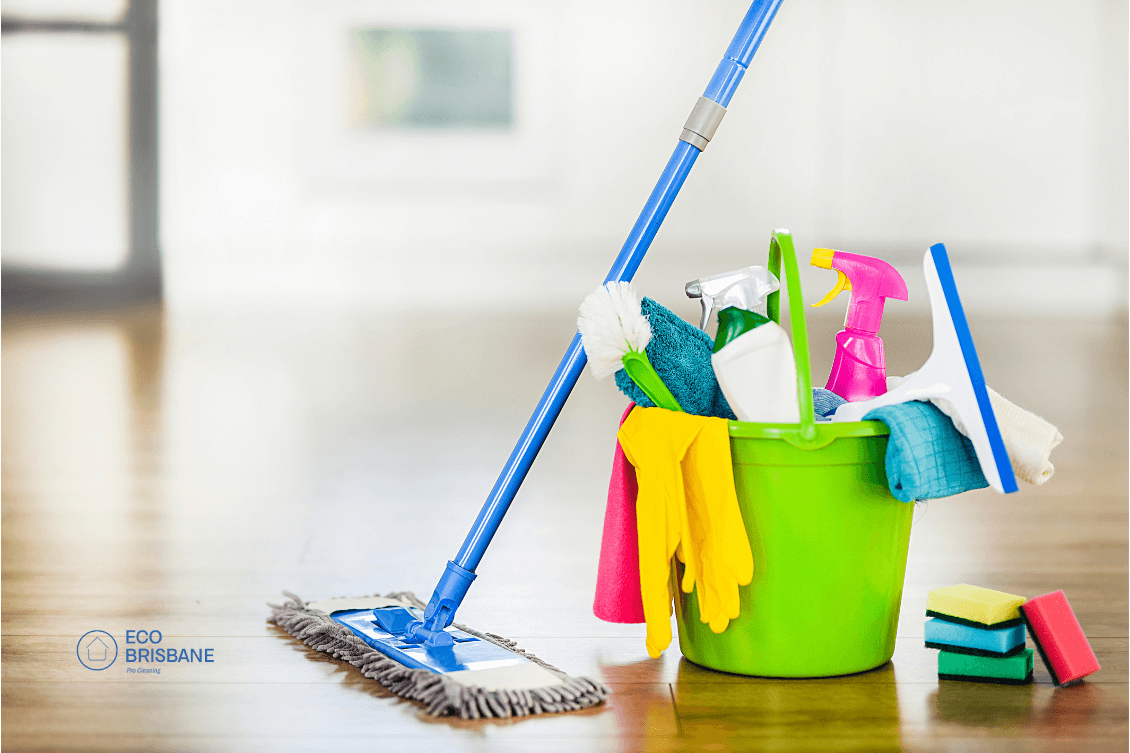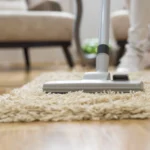Cleanliness and odourlessness are connected to each other. A properly cleaned property smells fresh and emits a good vibe. It’s difficult to overlook when there is a bad smell around the house or workplace. According to the EPA, bad smell can cause headaches, vomiting, and nausea. It affects your health and the overall environment. Bad smells can linger in the bathroom, kitchen, living room, drain, or trash bin. You need to change the air filters regularly, clean the surfaces, empty trash bins, and avoid smoking indoors. This will help you maintain good, fresh, and odourless indoor air.
10 Cleaning Tips for Odours and Lingering Smell Removal
You need to take various steps to remove unpleasant odours. It requires you to perform the following steps on a regular basis.

Bathroom Odour Control
Bathroom odour is often caused by mould, mildew, and bacteria. The environment is often damp there. Bacteria and mould can grow in such an environment. Pipe leaks, blocked drains, and poor ventilation in the bathroom make the condition worse. You need to clean the bathroom thoroughly to get rid of the foul smells. Keep the windows open or the exhaust fan running. Run regular inspections for leaks and fix them immediately. Clean the toilet, sink, bath mats, and tiles frequently.
There is often a P-shaped or U-shaped pipe behind your toilet or under the sink. It stops bad smells from coming into your home. It needs to be filled with water to prevent sewer gas. The water blocks the bad smells from coming back up.
Trash Bin Odour Care
Food wastes rot fast in the trans bins. They can spread a really bad smell. Rotten foods lead to bacteria and mould. Food scraps, liquids, and organic matter break down and produce smells. Make sure the bins are properly sealed. Poorly sealed bins and warm temperatures make the problem worse. Do these things to get rid of the smell:
- Empty trash bins regularly. You should not let garbage sit too long.
- Line your bin with trash bags to contain waste.
- Wash the bin with soap and water often.
- Use a disinfectant spray or wipe to kill bacteria. You must wear gloves to protect your skin and avoid inhaling fumes.
- You can use baking soda to absorb odours. Placing a few pieces of charcoal at the bottom can also help neutralise smells.
- Drain liquids before throwing food waste away. Food water can quicken the rotting and cause a more intense smell.
- Use a bin with a tight-fitting lid.
Get Rid of Mould and Mildew Odours
Mould and musty smells are common in damp environments. You may notice lingering odours in the bathrooms, kitchens, closets, and laundry rooms. The mouldy smell is a sign that your area is covered with mould. This is not only uncomfortable but also has health risks. The Northern Territory Government website claims that mould can cause asthma attacks and lead to respiratory problems.
You can use baking soda, charcoal, and cat litter to absorb the smell. These are natural odour eliminators and also prevent new smells from taking over. Find the places where mould has accumulated. Use white vinegar on the mouldy surface and let it sit for an hour. Scrub and rinse with water and dry it completely. Fill containers with absorbent and place them in those areas. You should change them monthly. This will help you keep your home free of the mouldy and musty smells.
Keep Your Pets Clean and Fresh
Your beloved pets can contribute to the lingering foul smells around the house. You need to clean their fur, saliva, and waste from here and there. Fur can trap dirt and odours, especially when they spend time outdoors. Saliva from licking can leave a smell on surfaces. Pet waste, if not cleaned promptly, can cause strong odours.
Regular grooming is essential to keep pets free of odour. You need to brush your pets regularly. It will remove dirt and loose hair. Bath them on a regular basis using pet-friendly shampoo. You should also focus on cleaning their bedding and toys frequently. Trim their nails and clean their ears to prevent odours. Training your pets to eat properly and potty training them can make pet odour removal tasks a lot easier for you.
Keep Your Kitchen Odour-free
A dirty and smelly kitchen can make cooking uncomfortable. The odours can come from cooking food, garbage, and dirty dishes. Grease and food particles can stick to surfaces and cause smells. The lingering odour indicates bacteria and mould growth. This shows an unhealthy environment for cooking. It can lead to respiratory issues and food contamination as well. Try these things to remove lingering smells from the kitchen:
- Wipe down countertops, stovetops, and appliances regularly.
- Use exhaust fans or open windows while cooking to remove odours.
- Empty trash bins regularly and clean them with disinfectant.
- Try boiling spices like cinnamon and cloves in water. This can improve and freshen indoor air quality.
- You can also try placing bowls of baking soda in the kitchen to absorb smells.
- Check the dishwasher and stoves regularly for smells. Run an empty cycle on the dishwasher with vinegar to clean and deodorise it.
Use Natural Odour Absorbent
You should opt for natural cleaning products. You can use lime, cinnamon, essential oils, baking soda, vinegar, activated charcoal, etc. They are safer options. Avoid chemicals, air fresheners and sprays that contain artificial fragrances for kitchen odour removal. They often contain volatile organic compounds. They release harmful chemicals into the air. This may irritate the respiratory system and contribute to indoor air pollution.
Sometimes, the odour can be too strong. You may need professional cleaners to deal with them. In that case, make sure they use natural solutions only. Using harsh chemicals, especially in the kitchen and living room, can be harmful to children and pets.
Change Air Filters and Dehumidifiers Regularly
Air filters and dehumidifiers are two effective equipment for home odour removal. Air filters trap dust and allergens. It keeps the indoor air fresh and cleaner. Regularly changing air filters and dehumidifiers helps eliminate bad smells. Dirty filters can trap odours and reduce air quality. You may need to replace the filter every 3 months.
Using air purifiers are better than air fresheners. Air fresheners only mask odours and may contain harmful chemicals. Air purifiers with HEPA filters capture odour-causing particles and improve air circulation. Dehumidifiers reduce moisture. It prevents mould and mildew that can cause musty smells. You need to empty and clean dehumidifier tanks frequently to avoid odours. It keeps the air from getting dampened. Mould and mildew growth is reduced. The air quality improves and keeps it fresh and odour-free.
Avoid Indoor Smoking
Indoor smoking is a very bad habit. It is harmful not only to you but also to other family members. Tobacco smoke contains about 7000 chemicals, according to the AIHW. The smoking leaves a strong smoke smell. It lingers on walls, furniture, and fabrics. It can be hard to remove even with odour-absorbing gels or enzyme cleaners. Smoke particles settle into surfaces and fabrics. It causes long-term odour and health risks. Take these actions for smoke smell removal from your household:
- Let more air come into the room that has the smoke smell. Proper ventilation will help carry out the smoky smell.
- Empty all ashtrays and clean them properly. It’s an effective smoke odour-neutralising technique.
- Use baking soda, vinegar, alcohol, or ammonia to clean the surfaces. These are effective lingering smell solutions.
- The best practice is to quit smoking at all. This will prevent odour and promote a healthy lifestyle for you and your family members.
Maintain Good Ventilation
The NREL suggests keeping your property well-ventilated to remove unpleasant odours to linger. This allows fresh air to circulate. It pushes stale air out and brings in clean air.
Opening windows and using exhaust fans can reduce odours from cooking, pets, and moisture. It also helps remove airborne particles and pollutants. Regularly ventilating your home keeps the air fresh and reduces the buildup of odours. Make sure air vents are clean and unobstructed. They can get dirty from dust, pet hair, and debris. Cooking fumes and smoke can also clog them. Over time, these particles build up and block airflow.
Keep Furniture and Carpets Dry
Furniture can get wet from spills, leaks, or high humidity. Flooding or improper cleaning can also cause moisture buildup. Wet furniture and carpets produce unpleasant odours. Fabric and padding absorb moisture and trap smells. Wood can swell and rot and emit odours. You need to dry the furniture completely to treat the smell. You can use fans and dehumidifiers. Clean with a vinegar and water solution. Sprinkling baking soda can help absorb the smells. Use essential oils for a fresh scent and ensure proper ventilation.
Final Thought
Lingering foul smell affects the air quality and poses health threats. You can follow the above steps to deal with them. For an intense and stubborn smell, you can get help from a professional. Eco Cleaning Brisbane offers a thorough cleaning service that uses only natural cleaners. It ensures better air quality and removes foul smells. Our expert team reaches hard-to-reach areas and cleans them thoroughly. You get to enjoy fresh and pleasant indoor air.

